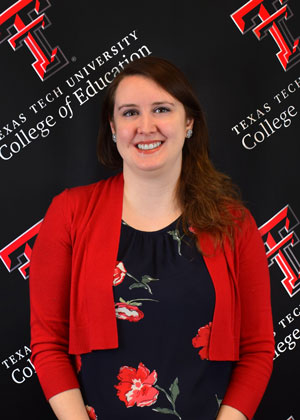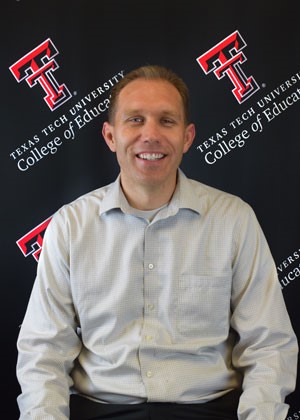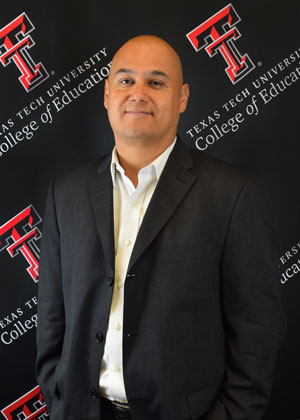Directors of the Texas EPFP
(Co)Directors responsibilities of the Texas EPFP
With the College of Education at Texas Tech University, (co)directors will coordinate the program:
- Plan and implement the Texas EPFP yearly
- Develop a program budget and manage the financial operations of the Texas EPFP
- Provide day to-day programmatic and administrative leadership for the site
- Recruit a minimum of 10 qualified individuals to participate in the program
- Establish a curriculum for the Texas EPFP to meet the educative needs of Fellows
- Liaison with IEL in the planning and development, delivery, governance, and evaluation of the Texas EPFP
Rebecca L. Hite, Ph.D. is an Associate Professor at Texas Tech University. She obtained her B.S. in biology, B.A. in geography, and M.A. in Secondary Science Teaching from the University of North Carolina at Chapel Hill, and her Ph.D. in Science education from the North Carolina State University. Her research focuses on STEM education: exploring avenues for K-12 STEM master teacher leadership; addressing issues of underrepresentation in STEM; evaluating the efficacy of targeted interventions to augment individual and collective STEM interest, motivation, and identities. Previously, Dr. Hite taught high school science for a decade in the Chapel Hill-Carrboro City schools. She is a North Carolina EPFP alumna (15-16) and serves as the director of the Texas EPFP program.
Jessica J. Gottlieb, Ph.D. is an Associate Professor at Texas Tech University. She obtained her B.S. in aerospace engineering from the University of Southern California, her M.A. in secondary education from Loyola Marymount University, and her Ph.D. in Policy Studies in Urban Education from the University of Illinois Chicago. Her research examines the formation, implementation, and impact of educational policies on access in STEM education. Previously, Dr. Gottlieb taught high school mathematics in South Los Angeles. She is serving as co-director of the TX EPFP program for governance and evaluation.
Jon McNaughtan, Ph.D. is an Associate Professor at Texas Tech University where his research covers two critical junctures of higher education. First, his work centers on the role and experience college presidents. In this vein he has studied how presidents are selected and their communication strategies during time of crisis. Through this line of work he hopes to assist in the development of future college leaders. Second, analyzes the role of community colleges in enhancing the STEM pipeline. Over the past four years he has assisted in the creation of a unique dataset that tracks over one million community college students through the STEM curriculum and also includes key measures of success. Through this line of work he hopes to answer questions regarding the role of community colleges in the production of STEM professionals and provide insight on how community colleges can better support students in these fields. He is serving as co-director of the TX EPFP program for oversight and recruitment.
Hugo A. García, Ph.D. is an Associate Professor at Texas Tech University. He obtained his B.A. in international relations from UC-San Diego, M.Ed. in higher education administration and student affairs from the University of Southern California, and a Ph.D. in Education with an emphasis in higher education from Claremont Graduate University. His research interests pertain to access in higher education, retention of underrepresented students at two- and four-year postsecondary institutions, international higher education, diversity in higher education, and P-20 education pipeline. Specifically, his work focuses on conducting research on community colleges and their impact on underrepresented students' academic success, student transition to community colleges and four-year institutions, institutional responses to globalization and the internationalization of higher education, and educational outcomes for students of color throughout the educational pipeline.
College of Education
-
Address
Texas Tech University, College of Education, 3002 18th Street Lubbock, TX 79409 -
Phone
(806) 742-2377 -
Email
educ.webmaster@ttu.edu




